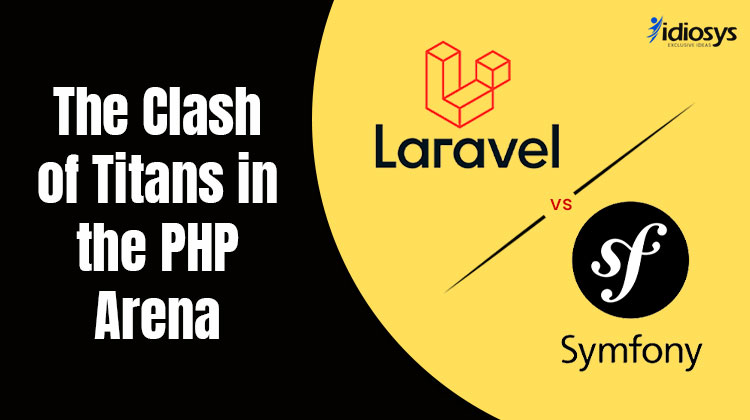
28 Nov, 2023
In the bustling arena of PHP development, two titans stand tall: Laravel and Symfony. Choosing between them can be a daunting task, akin to picking your favorite superhero. But fear not, intrepid developer! This blog delves into the heart of the Laravel vs Symfony battle, equipping you with the knowledge to make the ultimate choice for your project.
Laravel: The Speedy Superhero
Imagine a framework that's like Iron Man - sleek, powerful, and ready to take on any challenge. That's Laravel in a nutshell. Its batteries-included approach provides a pre-built arsenal of features, from authentication and routing to database management and email sending. This makes Laravel ideal for rapid development, allowing you to build MVPs and small-to-medium-sized projects in record time.
Laravel's strengths:
> Fast development: Laravel's convention-driven code and pre-built components streamline development, making it a developer's dream for quick turnaround projects.
> Eloquent ORM: Laravel's built-in Eloquent ORM simplifies database interaction, making data manipulation a breeze.
> Artisan CLI: The Artisan command-line interface is a powerful tool for scaffolding code, generating migrations, and managing tasks, boosting developer productivity.
> Thriving community: Laravel boasts a vibrant community with extensive documentation, tutorials, and packages, ensuring you're never alone on your development journey.
But is Laravel invincible? Its opinionated nature can be a double-edged sword. While it guides development, it might not suit projects requiring extreme flexibility. Additionally, Laravel's extensive codebase can be daunting for beginners.
Symfony: The Modular Mastermind
Think of Symfony as Captain America - adaptable, versatile, and a strategic leader. Its modular architecture allows you to pick and choose the components you need, crafting a framework tailored to your specific project's demands. This makes Symfony the champion for large-scale, complex applications requiring falexibility and customization.
Symfony's strengths:
> Flexibility: Build your framework, your way. Symfony's modularity allows you to select only the components you need, creating a lean and efficient development environment.
> Microkernel architecture: Symfony's core is lightweight and decoupled, making it highly customizable and scalable for large projects.
> Integration with other frameworks: Symfony plays well with others, integrating seamlessly with other popular PHP frameworks and libraries.
> Component-based development: Reuse code across projects with Symfony's independent components, promoting efficiency and maintainability.
However, Symfony's modularity can be a double-edged sword too. It requires a deeper understanding of PHP and the framework itself, making it less beginner friendly. Additionally, the lack of pre-built components can lead to longer development times for smaller projects.
Both frameworks excel in different areas, and the best choice depends on your specific needs.
Laravel: Choose Laravel if you're:
> Building a small-to-medium-sized project with quick turnaround times.
> New to PHP frameworks and want a beginner-friendly experience.
> Value rapid development and pre-built components.
Symfony: Choose Symfony if you're:
> Building a large-scale, complex application requiring flexibility and customization.
> An experienced PHP developer comfortable with modular frameworks.
> Prioritize long-term maintainability and integration with other frameworks.
Choosing the right framework depends on your specific needs and project requirements. Consider the following:
Project size and complexity: Laravel excels for smaller to medium-sized projects, while Symfony shines in large, complex applications.
Development timeline: Laravel's rapid development makes it ideal for quick projects, while Symfony's flexibility is better suited for long-term development.
Team expertise: If your team is comfortable with Laravel, stick with it. If you need granular control and experienced developers, Symfony might be the better choice.
Regardless of your choice, both Laravel and Symfony offer powerful tools to build exceptional web applications. Remember, the true champion is the one that empowers you to achieve your development goals. So, pick your weapon, sharpen your skills, and embark on your web development journey, leaving a trail of success in your wake!
You May Also Read
How A Food Delivery App Can Transform Your Restaurant Business In 2023
